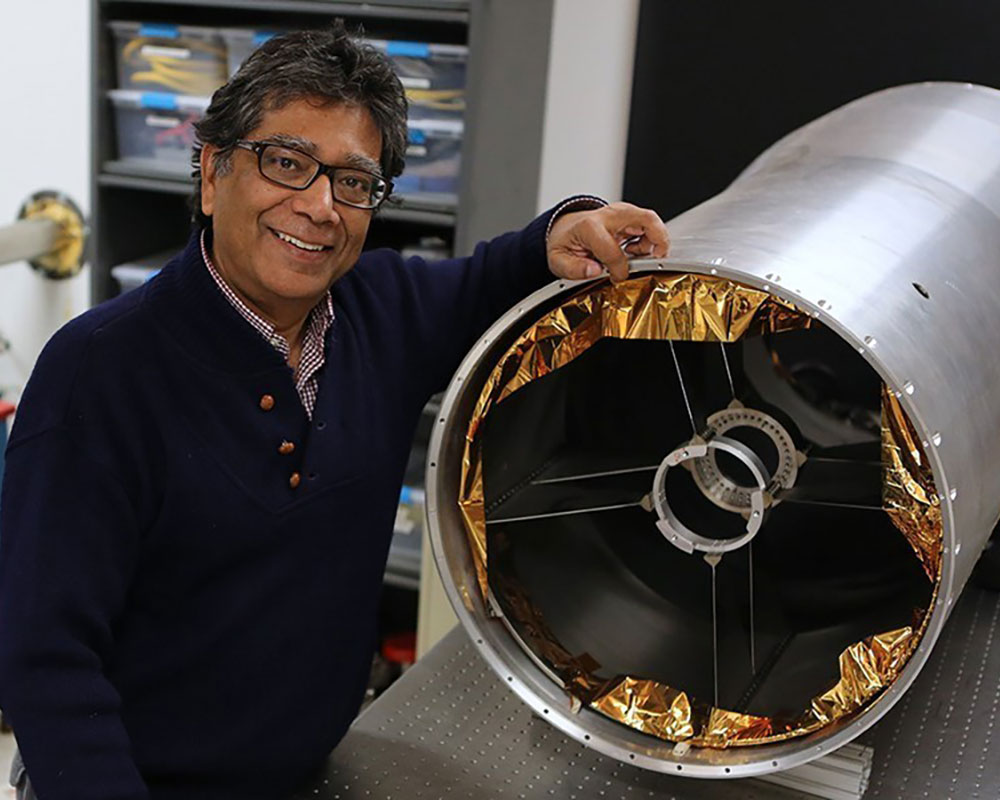Drawing on UMass Lowell’s expertise in spacecraft design and track record of successful missions, the university has secured $5.5 million in state funding to launch a research center where scientists, industry leaders and startups can build and test miniature satellites and components essential to spaceflight.
The initiative, known as the Massachusetts Alliance for Space and Technology and Sciences, or MASTS, is anchored by a two-year, $5.5 million grant from the state via the Massachusetts Technology Collaborative. The grant required the university and MASTS partners to match at least that amount in additional funds and in-kind services dedicated to the project. That threshold was exceeded, with goods, services and funds valued at $10 million pledged for the years ahead as the center grows. These collaborators include fellow research universities, community colleges and aerospace and defense companies, as well as research-focused nonprofits from Massachusetts and around the world.
“Massachusetts has a strong tech and innovation legacy, and the MASTS project leverages that history to ensure our state remains at the forefront of the new space age,” said Gov. Maura Healey in a previous release about the project.
The global small satellite market is a multi-billion-dollar industry. The money and resources secured for MASTS will support investments in the UMass Lowell Center for Space Science and Technology, expanding the center to offer design, fabrication, testing, simulation and validation facilities for miniature satellites and satellite constellations, as well as innovations in advanced imaging optics, sensors, materials, power, cooling and navigation systems, communications electronics and antennas and other systems essential to space missions.
Over the past decade, the university has launched multiple NASA-funded missions to develop technologies for imaging planets beyond the solar system and a miniature satellite designed and built by UMass Lowell students released into orbit by astronauts at the International Space Station.
MASTS will offer students from UMass Lowell and other Bay State higher-ed institutions an opportunity to gain firsthand experience while participating in aerospace projects, complementing the university’s recently expanded physics and engineering programs. These include an aerospace studies minor for undergraduates and an aerospace sciences option for doctoral candidates in physics.
“With the support of the Healey-Driscoll administration, the MassTech Collaborative and our partners, the sky’s the limit. MASTS will hone the expertise of our students as the next generation of aerospace leaders and provide the essential resources to pioneer innovations that grow the industry,” said UMass Lowell’s Supriya Chakrabarti, a physics professor who will lead the project with UMass Lowell physics Associate Professor Timothy Cook. Jason Martel, a UMass Lowell senior mechanical engineer, will pilot the establishment of MASTS’ testing facilities.
MASTS funding will also enable Massachusetts-based aerospace company Nanoracks to design, build, test and fly a new satellite prototype proposed by Chakrabarti called Chickadee, a project named after the Massachusetts state bird. He also envisions the scientific discoveries and technologies realized through MASTS could fuel new startup companies in related fields, particularly the robotics industry, he said.

